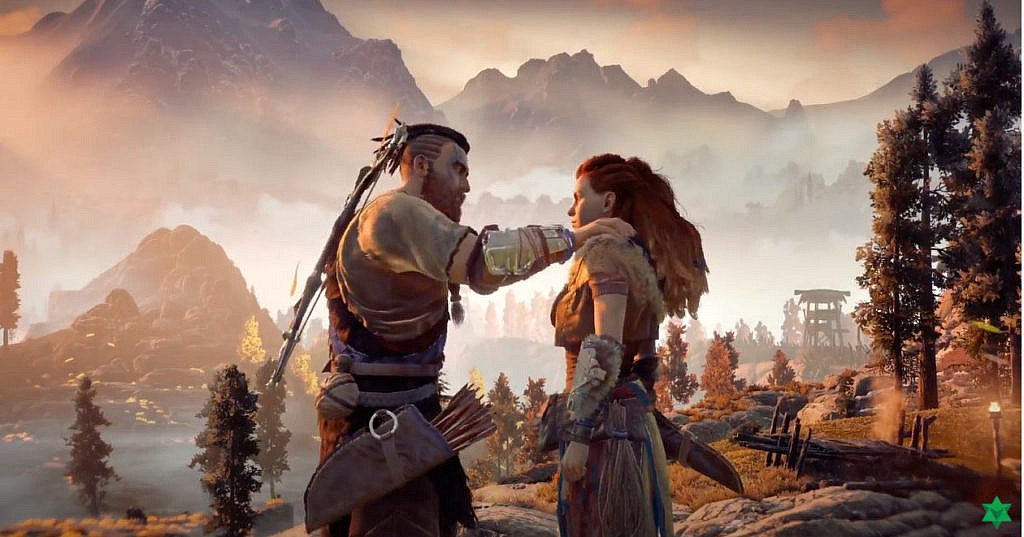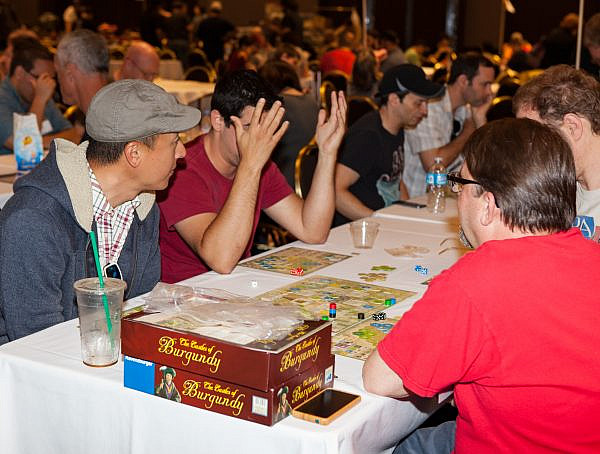A study by Dalila Forni argues that video games -especially narrative ones- have a potential educational benefit on promoting gender equality by subjecting the players to diverse expressions of gender. According to the paper, studies have shown a substantial link between video games and beliefs about abilities related to gender for both male and female players (Behm-Morawitz, Mastro, 2009).
Well-rounded female characters in games make women feel more represented and welcomed into video game culture. For male players, these characters offer a new point of view, the possibility to relate to another gender, and affect how these players see women in the real world. Moreover, it is imperative to present not only more nuanced minorities but also intersecting identities as well, highlighting the equal and stereotype-free approach to these representations. Horizon Zero Dawn, an action role-playing game from 2017, is used in this case study. This particular title was chosen due to its diverse gender roles and identities that offer a complex narrative.
Video games are still a male-dominated field, even though girls and women make up a large portion of video game consumers. The study introduces two familiar tropes that female models in video games are diminished to: a damsel in distress and a moving body. The damsel in distress is passive and in need of saving by the male protagonist. The moving body, instead, might be strong and daring but still sexualized, objectified, and in skimpy clothing for no other reason than the male gaze. Non-playable moving bodies rarely have nuanced personalities, and their primary role is to be seen by the male players. Even playable moving bodies cannot escape the male-dominated perspectives that define how women and femininity are portrayed. According to Forni, these tropes are persistent, but there have been some recent games like Horizon Zero Dawn that have taken a more progressive stance on gender presentation.
Literary theory (narratology) was used to analyze Horizon, using a framework such as “clothing, social roles, interactions concerning gender” and other applicable characteristics that promoted less traditional gender norms for both males and females. According to the study, Horizon offers a plethora of characters with complex personalities and different characteristics like age, status, and profession. Many characters are anti-stereotyped and still accepted as a natural part of society. Criticism towards non-traditional characters is not aimed towards their gender but other features instead.
The player is introduced to various expressions of femininity, protagonist Aloy being just one such presentation. She is a contemporary female heroine; conventionally beautiful and lean, and her profession, a hunter, is typically considered a masculine area of work. Despite this, she is not overtly sexualized: when other characters talk about Aloy, they rarely mention her looks and instead describe other, non-physical traits, such as her strength or bravery. Her clothing seems reasonable for her surroundings; it looks functional and shows little skin. However, Aloy is not a symbol or a model for all the women in the game. She is merely a character among many kinds of women.
The study also mentions other female characters that defy traditional presentation. All these characters are noteworthy because they occupy typically male-dominated professions and positions, their personalities are multifaceted, they are active subjects in their environment, and yet clearly present themselves as feminine women. In addition to re-examining the norms around gender, the player is also led to reconsider traditional patriarchal society and religion; The Nora, one of the tribes introduced in the game, is a matriarchy and worships a goddess known as Mother. The “flipped” system where women hold important positions is atypical in video games offers an interesting point of view for the player to reflect on.
Men in Horizon are many times presented in a nuanced and non-stereotypical way as well. Rost, Aloy’s adoptive father, is described as kind-hearted and intelligent, and being a father is his essential trait. His personality is the opposite of the absent or aloof father-figure typically portrayed in video games, despite his masculine appearance. Another atypical male in Horizon is Teb, an honest, brave, yet weak and shy tailor who is saved from attacking machines by Aloy at the beginning of the game.
Forni uses the term gender education to describe the continuous process that molds the individual’s idea of what is considered masculine and feminine. Video games are particularly useful tools to enforce (or dismantle) gender models due to the complex relationship between the player and the player’s avatar. According to Forni, the intertwining of “me and the other me” might encourage the player to empathize with the character’s gender, sexual orientation, ethnicity, or other identifying features by letting the player “walk a mile in the character’s shoes.”
Behm-Morawitz, E., & Mastro, D. (2009). The Effects of the Sexualization of Female Video Game Characters on Gender Stereotyping and Female Self-Concept. Sex Roles, 61(11–12), 808–823. https://doi.org/10.1007/s11199-009-9683-8
Forni, D. (2020). Horizon Zero Dawn: The Educational Influence of Video Games in Counteracting Gender Stereotypes. Transactions of the Digital Games Research Association, 5(1), 0. https://doi.org/10.26503/todigra.v5i1.111
photos: Header Horizon Zero Dawn press kit photos. https://www.igdb.com/games/horizon-zero-dawn/presskit#images Photo of Aloy and Rost screenshot from presskit trailer https://www.youtube.com/watch?v=w9SaRenIbfQ&feature=emb_logo
You might also like
More from Game Research Highlights
How do you want to do this? – A look into the therapeutic uses of role-playing games
Can playing RPGs contribute positively to your wellbeing? A recent study aims to find out how RPGs are being used …
Eldritch horrors and tentacles – Defining what “Lovecraftian” is in games
H.P. Lovecrafts legacy lives today in the shared world of Cthulhu Mythos and its iconic monsters. Prema Arasu defines the …
Are Souls Games the Contemporary Myths?
Dom Ford’s Approaching FromSoftware’s Souls Games as Myth reveals the Souls series as a modern mythology where gods fall, desires …
















